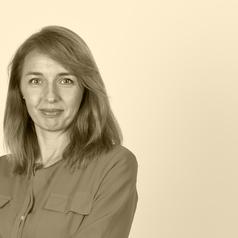
Elea Giménez Toledo
Científica titular del Centro de Ciencias Humanas y Sociales (CCHS - CSIC), Centro de Ciencias Humanas y Sociales (CCHS - CSIC)
Científica Titular del Consejo Superior de Investigaciones Científicas (CSIC) de España.
Coordinadora de la Plataforma Temática Interdisciplinar ES CIENCIA
Directora del Grupo de investigación sobre Libro Académico (ILIA).
Doctora y Licenciada en Documentación por la Universidad Carlos III de Madrid.
Less ![]()
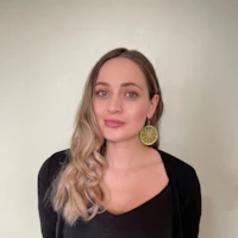
Eleanor Barnett
Leverhulme Early Career Fellow in the School of History, Archaeology and Religion, Cardiff University
I am a historian of food and early modern religion.
As a Leverhulme Early Career Fellow at Cardiff, my research project is entitled 'Eating Exchanges: Food and Religious Encounter in the Early Modern World'. I aim, by exploring moments in which food was exchanged between people of different faiths, to better understand cross-cultural encounter: the divisions, inequalities, and friendships that shaped the early modern world. A focus on food exchange also helps to break down the Christian-centric interpretations of significant early modern processes including the Reformations, colonialism, and globalisation. My major research case studies are situated in the northeast coast of early America and the metropolitan city of Venice.
I am currently converting my PhD thesis into an academic book entitled The Reformation of Food, which exposes the role of food and eating in the division between Protestants and Catholics through the comparative case studies of England and Italy. My other major area of research is the history of food waste; my trade book Waste Not: A Kitchen History of Leftovers is under contract with Head of Zeus. With Katrina Moseley, I am editing a special issue of Global Food History, which is entitled 'Histories of Food Waste and Sustainabiltiy'.
My research in food history speaks to a wider audience and I am regularly involved in public-facing history initiatives and media interviews. Each day, as @historyeats on Instagram, I share food history facts, artwork, and objects to a wonderful community from across the world.
Less ![]()
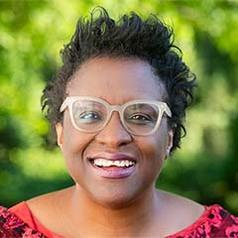
Eleanor Brown1
Professor of Law, Fordham University
Eleanor Brown is a leading scholar of property, migration, globalization, development, and race and the law.
Brown is currently a Professor of Law and International Affairs at the Pennsylvania State University (University Park campus), as well as a fellow at the Rock Ethics Institute. She is a member of the Board of Advisors of the Africana Research Center and an Advisor in the Schreyer Honors College. She was also the founding faculty advisor for the Black Students Association in the School of International Affairs. In recognition of her activism and allyship for marginalized identities, both within and outside academia, Brown was named one of the first recipients of the Ona Judge Award for Human Rights by the Human Rights Society, a joint student organization at Penn State Law and the School of International Affairs.
Brown, a Jamaican national, has previously been a Schwartz Fellow at the New America Foundation, a GWIPP Fellow at the George Washington Institute of Public Policy, and a Reginald Lewis Fellow at Harvard Law School. She has been a member of the board of directors of the Association for Law, Property and Society, the Conference Planning Committee for the Immigration Law Professors Association, and the Fellowship Committee for the Association of University Women. She has also served on the Scholarly Prize Committee for the Law and Society Association.
Brown’s scholarship has been published in the Yale Law Journal, California Law Review, the University of Chicago Law Review, the Michigan Law Review and the New York University Law Review, among many others. She has also published with The New Republic, The New York Times, and the Los Angeles Times and has been a commentator on NPR. Among Brown’s academic accolades, her paper “The Blacks Who ‘Got’ Their 40 Acres” was one of two papers selected in the property category for the Yale/Harvard/Stanford Junior Faculty Forum.
Brown holds a bachelor’s degree in molecular biology from Brown University and a master’s degree in politics from Oxford University, where she was Rhodes Scholar. She earned her juris doctor in 1999 from the Yale Law School and served as a clerk for the Honorable Patricia Wald of the U.S. Court of Appeals for the District of Columbia and the Honorable Keith Ellison of the U.S. District Court for the Southern District of Texas.
Brown was appointed by The Most Honorable Andrew Holness, the Prime Minister of Jamaica, to the Jamaican Education Transformation Commission. She was also appointed to and served on the CARICOM Commission. She has served on the boards of several publicly traded Caribbean companies, and was the youngest director of two subsidiaries of the Bank of Nova Scotia (Jamaica), one of the largest subsidiaries of the largest Canadian bank (by market capitalization). Brown chaired the Conduct Review Committee of the Board for Scotia Jamaica Investment Management. She was a member of the Sugar Enterprise Team, the entity appointed by the Jamaican Cabinet to oversee private sector participation in the Jamaican sugar sector.
Brown was previously the youngest director of JPSCo, the electric utility owned by Korea East West Power, Marubeni Corp. of Japan, and the government of Jamaica. She chaired the Pension Fund Subcommittee of the board. She was also a member of the board appointed by the chancellor charged with septennial review of the operations of the University of Technology in Jamaica. Brown was also an external board member of Caribiz, an association of Caribbean alumnae and students of Harvard Business School and the Wharton School of the University of Pennsylvania, formed to promote capital market development in the Caribbean. Brown is also active in the Anglican (Episcopalian) faith community.
Less ![]()
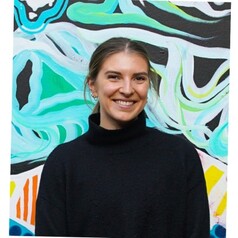
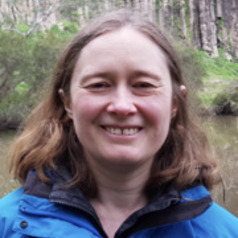
Eleanor Green
Senior Lecturer In Computational Petrology, The University of Melbourne
I gained my PhD from the University of Cambridge in 2011, after which I held post-doctoral research positions at the University of Mainz, the University of Bristol and ETH Zurich. I joined the University of Melbourne in January 2019 as a Senior Lecturer in Computational Petrology.
I model the thermodynamic properties of minerals and melts, and use this modelling to investigate a variety of Earth processes. The models that I make are based on information taken from thousands of experiments on geological materials, as well as computer simulations and observations of rocks in the field. As such, the models serve to summarise our knowledge of the properties of these materials, subject to some interpretation. My primary interest is in improving the process of developing the models - incorporating more information in more meaningful ways, so as to mimic natural materials more accurately and in a wider range of geological contexts. Much of my work builds on the Holland & Powell internally-consistent dataset, and the families of activity-composition relations developed by Roger Powell, Tim Holland, myself and other co-workers. These models are often associated with Roger Powell's program, Thermocalc. I am involved with several projects that apply the thermodynamic models to geological problems. Recent applications include integrated geodynamic and thermodynamic modelling of magma storage and ascent, multiple-reaction thermobarometry for cumulate rocks, and thermodynamic constraints on the formation of the Earth's crust.
Less ![]()
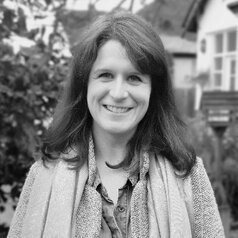
Eleanor Lybeck
Senior Lecturer in Literature, University of Liverpool
I joined the Institute of Irish Studies in 2019. Before moving to the University of Liverpool, I completed postgraduate studies in literature at New York University as a Fulbright scholar and at the University of Cambridge with the support of the AHRC. After finishing my PhD in 2015, I worked as a stipendiary and departmental lecturer at the University of Oxford.
My research interests cover the period since 1800 and fall into two categories: theatre & performance history and Irish literature & culture. I published a book on the circus in Irish literature and culture, All on Show, with Cork University Press last year. I am now working on my second monograph, which explores how English comic opera became a colonial export in the late Victorian and Edwardian periods. At the same time, I am working on an adaptation for live performance of Virginia Woolf's final novel Between the Acts and, with Dr Ataa Alsalloum of Liverpool's School of Architecture, an edited collection exploring aspects of intangible cultural heritage among migrant communities in the UK.
I teach on a wide range of both Irish studies and English modules, and convene modules on writing for radio, migrant writing, and twentieth-century and contemporary Irish writing. Like my research, my teaching tends to be interdisciplinary, combining my interests in literary criticism, theatre and performance studies, and history, and I encourage students to develop their own practical skills through creative critical assessment.
I am always on the look out for new ways to share my research with diverse audiences, both within and beyond the university. In 2008, I founded the production company Sidelong Glance: its mission is to turn academic research into widely accessible theatre, performance and documentary film. Sidelong Glance produced the short film series Whose History? for the Institute of Irish Studies at Liverpool in 2021; another of the company's productions, Wild Laughter, is a set text on undergraduate drama modules in English. In 2017, I was named an AHRC/BBC Radio 3 New Generation Thinker. Since then, I have written, presented and appeared on a number of BBC Radio 3 and Radio 4 programmes. I have also written for various newspapers, magazines and blogs, including Vogue, the Irish Times and HuffPost UK.
Within Liverpool's School of Histories, Languages and Cultures, I am the Deputy Academic Lead for Admissions and Widening Participation.
Less ![]()
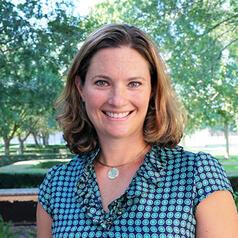
Eleanor Putnam-Farr
Assistant Professor of Marketing, Jones Graduate School of Business at Rice University
Nell Putnam-Farr is an assistant professor of marketing at the Jones Graduate School of Business at Rice University. Her research focuses primarily on how framing and contextual cues impact decision making and satisfaction. Within this domain, she considers how framing might have different effects on immediate decisions versus long term satisfaction and persistence, how contextual clues impact expectations and satisfaction, and how intercepting people at the “right” point in the decision process can impact attention and behavior. She works with company partners in the consumer packaged goods, wellness, and financial services sectors, focusing on how to improve financial and physical well-being. She relies on a combination of lab and field experiments – usually testing in the field with a corporate or non-profit partners and then working to determine a mechanism and/or boundary conditions in the lab.
Less ![]()

Eleanor Rivera
Assistant Professor of Population Health Nursing Science, University of Illinois Chicago
Less ![]()
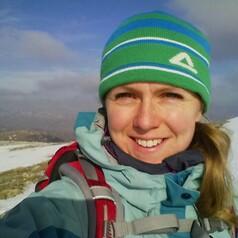
Eleanor Warren-Thomas
Lecturer in Conservation and Forestry, Bangor University
I am a conservation scientist, working across disciplines to understand the difficult trade-offs we negotiate in biodiversity and environmental conservation, with the aim of finding solutions that offer benefits for people, biodiversity and the wider environment.
I have led ecological field surveys to assess evidence trade-offs and win-wins for biodiversity, livelihoods and carbon in smallholder plantation landscapes in Southeast Asia, but also use a variety of economic and spatial modelling approaches to understand how land use change affects biodiversity, people and climate at larger scales.
Less ![]()

Eleder Piñeiro Aguiar
Ayudante-Doctor en Facultad de Sociología, Universidade da Coruña
ELEDER PIÑEIRO AGUIAR, Perfil
Profesor Ayudante Doctor, Facultad de Sociología
Universidade da Coruña
Acreditado a Contratado Doctor por la ANECA
Formación académica
Doctor (PhD) en Antropología (UDC, España)
Magister en Migraciones Internacionales (UDC, España);
Licenciado en Sociología (UDC, España)
Líneas de investigación: Movilidad humana, fronteras, indigenismo, teoría del Estado, teoría decolonial, pensamiento crítico, metodología cualitativa.
Investigación
- I+D+i Culturas emergentes de precariedad móvil en la GIG economy digital:
un estudio de caso sobre el sector de la comida a domicilio en España. REFERENCIA: PID2020-115170RB-I00. Desde 1 de septiembre 2021 (duración hasta 31 agosto 2024). Investigador principal: Maribel Casas Cortés. Financiado por Ministerio de Educación. Participación como grupo de trabajo.
- I+D+i “Hacia un curriculum sensible al género en la formación inicial del profesorado (SIMONE)”. Desde 6 de julio de 2022. Referencia PID2021-122206NB-I00. Desde Investigadora Principal María Ángeles Rebollo Catalán. Financiado por Ministerio de Ciencia e Innovación.
Less ![]()
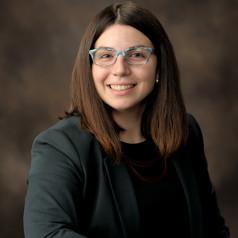
Eleftheria Kontou
Assistant Professor of Civil and Environmental Engineering, University of Illinois at Urbana-Champaign
Dr. Kontou is an assistant professor of Civil and Environmental Engineering at the University of Illinois Urbana-Champaign. Her research focuses on sustainable and electrified transportation systems planning and management. She received her Ph.D. in Civil Engineering from the University of Florida, her MSc from Virginia Tech, and a Diploma from the National Technical University of Athens. She was a postdoctoral research associate at the Transportation and Hydrogen Systems Center of the National Renewable Energy Laboratory and the City and Regional Planning Department of the University of North Carolina at Chapel Hill. She is a member and the communications coordinator of the Transportation Research Board (TRB) Committee on Alternative Fuels and Technologies (AMS40) and the Chair of TRB’s Young Members Coordinating Council. She is a 2023 NSF CAREER awardee, a 2022 Illinois-Indiana Sea Grant Faculty Scholar, a 2021 US Frontiers of Engineering Invited Participant, and an iSEE Levenick Sustainability Teaching Fellow at the University of Illinois. She is a member of the Editorial Advisory Board of Transportation Research Part D journal and an Early Career Advisory Board member of Transportation Research Part C journal and serves on the Steering Committee of the Illinois Alliance for Clean Transportation.
Less ![]()
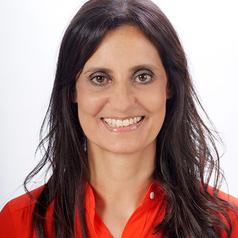
Eleftheria Laios
Educational Developer, Queen's University, Ontario
Eleftheria (Elita) is a clinical laboratory science professional. She has worked in research labs to develop new ways of diagnosing disease, and in hospital labs to conduct analyses and provide medical laboratory information that helps with disease prevention, monitoring, diagnosis, and treatment. Eleftheria is also an educational developer focused on improving or developing existing programs and curricula, enhancing teaching and student learning, and researching theories and strategies related to teaching and learning. As an educator herself, she applies educational theories to teach her core discipline of chemistry, as well as teaching health professions educators about research in education.
Less ![]()
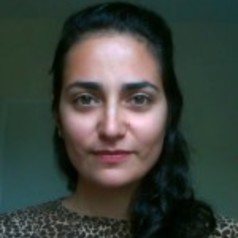
Eleftheria Lekakis
Senior Lecturer In Media and Communication, University of Sussex
Eleftheria is a senior lecturer in media and communications whose research interests grow from the intersection of politics, economy and culture. Prior to joining Sussex, she was a Research Fellow at the Centre for the Study of Global Media and Democracy at Goldsmiths College, University of London and Visiting Scholar at the Annenberg School for Communication, University of Pennsylvania. She holds degrees in political science (BA, University of Crete) and media and communications (MSc, London School of Economics and PhD, Goldsmiths College), while she also has a PGCertHE (University of Sussex).
Eleftheria is the author of Coffee Activism and the Politics of Fair Trade and Ethical Consumption in the Global North (Palgrave, 2013) and Consumer Activism (Sage, 2022), as well as co-editor of Art, Law and Power (Counterpress, 2020).
Eleftheria has been superivising doctoral projects in humanitarian communication, markets and culture, anti-consumerism as well as advertising and the climate crisis. She is interested in supervising projects in consumer activism, communication for social change, branding and anti-branding, media activism and anti-austerity, popular communication and cultural politics.
Less ![]()
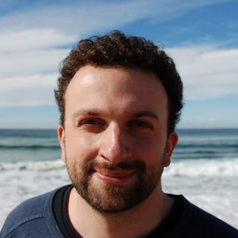
Elek Pafka
Research Fellow, University of Melbourne
Elek Pafka is a Research Fellow at the Faculty of Architecture, Building and Planning at the University of Melbourne. His research focuses on the relationship between material density, urban form and the intensity of urban life, as well as methods of mapping the 'pulse' of the city. He has participated in research on transit orientated development, functional mix and high-density living.
Less ![]()
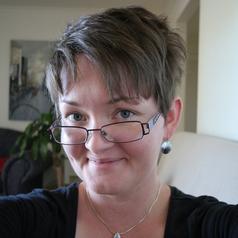
Elen Shute
Researcher, Flinders University
I am a Vertebrate Palaeontologist by training, specialising in Australian bird fossils from the recent past. My PhD research was on Pleistocene bird fossils from the Thylacoleo Caves beneath the Nullarbor Plain, and included the discovery of several new extinct species. These days I work primarily in conservation, where I try to prevent living species from becoming tomorrow's fossil species.
Less ![]()
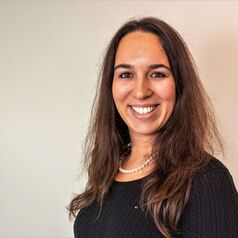
Elena Abrusci
Senior lecturer in Law, Brunel University London
Senior Lecturer in Law at Brunel University London, researching on human rights law, digital regulation and the impact of AI and emerging technologies on human rights. Author of Judicial Convergence and Fragmentation in International Human Rights Law (Cambridge University Press, 2022).
Less ![]()
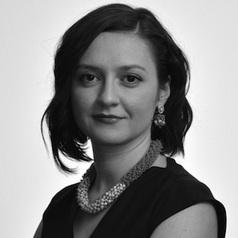
Elena Doldor
Associate Professor in Organisational Behaviour, Queen Mary University of London
Elena is Associate Professor in Organizational Behavior at Queen Mary University of London, where she holds leadership roles as Research Impact Director and Co-Director of the Centre for Research in Equality and Diversity (CRED) in the School of Business and Management.
She is an expert on gender and ethnic diversity in leadership and on boards. Her research explores formal and informal aspects of career progression, leadership development, and board appointment processes, from a D&I perspective. Her work has been published in world-leading academic journals, including Harvard Business Review, Human Relations, The Leadership Quarterly, and Human Resources Management Journal.
Elena is passionate about using her research to support change and regularly collaborates with organizations and policymakers that seek to advance diversity in leadership, through advisory work and bespoke masterclasses. Her research informed the Davies and Hampton-Alexander reviews on women on UK boards.
Less ![]()

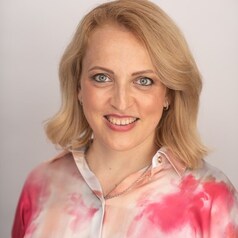
Elena Makovac
Senior Lecturer in Clinical Psychology, Department of Life Sciences College of Health, Medicine and Life Sciences, Brunel University London
Dr. Elena Makovac is a Senior Lecturer in Clinical Psychology and an HCPC registered Clinical Psychologist specializing in neuropsychological assessments and rehabilitation.
She graduated in Psychology, and completed a post-graduate education in Neuropsychology and Clinical psychology.
She also obtained a PhD from in Cognitive Neuroscience from the University of Edinburgh in 2012. Since then, she has dedicated her time, both as a clinician and as a scientist, to the investigation of mind-body interactions in affective disorders, chronic pain and neuropsychological conditions. The interaction between emotions, pain and cognition is the focus of her clinical and scientific work.
In her clinical work, she mainly adopts a Cognitive-Behavioural approach, with specific focus on Mindfulness based Cognitive Behavioural Therapy, Acceptance and Commitment techniques and Deep Breathing Relaxation exercises. With her scientific work, she investigates the relationship between the mind and body in affective disorders, chronic pain, and neuropsychological conditions. Her focus is on understanding the interplay between emotions, pain, and cognition in these overlapping conditions.
Less ![]()
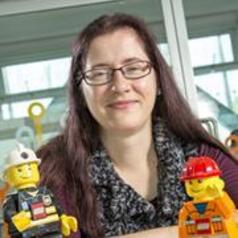
Elena Moltchanova
Professor of Statistics, University of Canterbury
I am the head of the statistics consulting unit and my research interests include applied Bayesian spatio-temporal modelling, epidemiology and modelling of extreme events.
Less ![]()
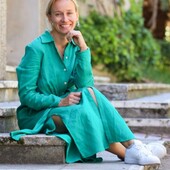
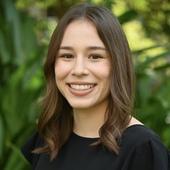
Elena Morgenthaler
PhD Candidate, School of Criminology and Criminal Justice, Griffith University
Less ![]()

Elena Pérez Elena
Doctoranda FPU en el programa Estudios Artísticos, Literarios y de la Cultura de la UAM y profesora en el Grado de Lenguas Modernas, Cultura y Comunicación (UAM), Universidad Autónoma de Madrid
Graduada en Historia y Patrimonio (itinerario en Arte y Patrimonio) y en Humanidades: Estudios Interculturales (itinerario Filosofía de la Interculturalidad) por la Universitat Jaume I (Castellón), donde durante cuatro años trabajó con el Programa “Estudia e Investiga” en el Instituto de Estudios Feministas de la Universidad. Posteriormente, realizó el máster en Estudios Árabes e Islámicos Contemporáneos en la Universidad Autónoma de Madrid, mientras disfrutaba de la beca de Ayudas al Fomento de la Investigación de Máster de la misma Universidad con el objetivo de estudiar la memoria de la diáspora iraní a través de las viñetas de novelas gráficas autobiográficas de artistas exiliados. Disfrutó de una beca JAE de Introducción a la Investigación en el Instituto de Filosofía del CSIC en 2017. Becada en la Residencia de Estudiantes por el Ayuntamiento de Madrid en el curso 2018/2019. Actualmente se encuentra realizando su tesis doctoral con un contrato FPU en la Universidad Autónoma de Madrid. El proyecto tiene como título provisional «Identidad y memoria en la novela gráfica iraní en diáspora».
Less ![]()
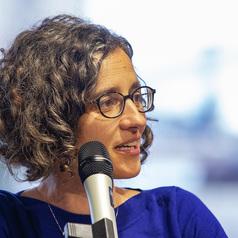
Elena Prieto-Rodriguez
Associate Professor, University of Newcastle
I hold a Bachelor degree in Mathematics and a PhD in Theoretical Computer Science. I have worked extensively in STEM Education, including several Australia-wide research projects. I am currently engaged in several nation-wide projects focused on the use of technology for the learning of mathematics and teacher training and professional development. I am Deputy Head of the School of Education at the University of Newcastle and a member of the Teachers and Teaching Research Centre.
Less ![]()
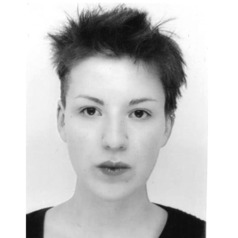
Elena Reboul
Post-doctorante, Centre d'études de l'emploi et du travail, Conservatoire national des arts et métiers (CNAM)
Less ![]()
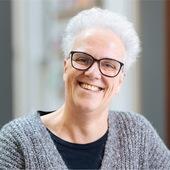
Elena Semino
Distinguished Professor in Linguistics and English Language, Lancaster University
Less ![]()
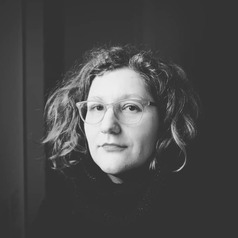
Elena D. Hristova
Lecturer in Film and Media, Bangor University
Dr Elena Hristova is a Lecturer in Film and Media at Bangor University, Wales, UK.
I'm a historian of U.S. media and culture. My research is at the intersection of media and communication history, critical whiteness studies, gender studies, social movements, and critical approaches to methodology. My current work examines the history of women's labour in media and communication research and it's implications for disciplinary foundations and research methodology.
My research has been published in the International Journal of Communication, and my co-edited (with Aimee-Marie Dorsten and Carol A. Stabile) collection The Ghost Reader: Recovering Women's Contributions to Media Studies is published in January 2024 by Goldsmiths Press. I used to edit Teaching Media Quarterly, an open access peer reviewed journal for the undergraduate classroom.
Less ![]()
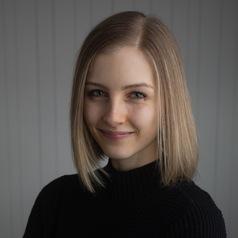
Elena G. van Stee
Doctoral candidate in sociology, University of Pennsylvania
I am a Ph.D. Candidate in Sociology at the University of Pennsylvania and a 2021-2023 Institute of Education Sciences (IES) predoctoral fellow. I study how inequality shapes family relationships, educational trajectories, and young adult transitions.
Less ![]()
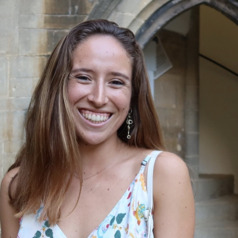
Elena Gordillo Fuertes
MA student in Public Policy and Research Fellow, University of British Columbia
Elena is a First-Class graduate from the University of Oxford and a current student in the Master of Public Policy and Global Affairs at the University of British Columbia. She has more than 3 years of experience working in the NGOs and the private sector as a sustainability consultant. She is a native Spanish and English speaker and is fluent in French and Italian. She has been the recipient of numerous merit-based scholarships and awards at both her academic institutions. She has worked in Europe, Africa and North America. Her research interests lie at the intersection between human rights and environmental governance.
Less ![]()
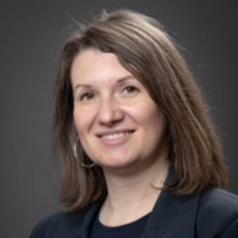
Elena Jackson Albarrán
Associate Professor of History and Global and Intercultural Studies, Miami University
Dr. Albarrán teaches courses in modern Latin American history, specializing in themes of comparative histories of childhood (Latin American, world, and Cold War), revolutions, popular culture, and capitalism. She was awarded the Conference of Latin American Historians Teaching Award in 2024, and the Miami University College of Arts and Sciences Distinguished Educator Award in 2020.
As a scholar, Dr. Albarrán is a cultural historian of twentieth-century Mexico and the history of childhood. She is the author of Good Neighbor Empires: Children and Cultural Capital in the Americas (Brill 2024), and Seen and Heard in Mexico: Children and Revolutionary Cultural Nationalism (Univerisity of Nebraska Press 2015). She is co-editor and contributor to the volume Nuevas miradas a la historia de la infancia en América Latina (Universidad Nacional Autónoma de México 2012). She has examined the methodological challenges faced by childhood scholars through a critical analysis of her own childhood diary in a chapter contribution to the volume Children as Subjects, Objects, Agents: Approaches to Research in a Global Context (Palgrave MacMillan 2021). Her research on the intersections of national and transitional youth identities through the Mexican Boy Scouts appears in the volume Transnational Histories of Youth in the Twentieth Century (Palgrave MacMillan 2015). Her work on the rhetorical construction of the proletarian child in Mexico as a national ideal was published as a chapter in the collection Mexico in Verse: A History of Music, Rhyme, and Power (University of Arizona Press 2015).
Albarrán is a founding member of the Latin American childhood scholars' network Red de Historiadores de las Infancias de América Latina (REHIAL). Her long-term collaborations with scholars of childhood are reflected in her contributions to the collection Children and Youth as Subjects, Objects, and Agents: Approaches to Research in a Global Contex (Palgrave MacMillan 2021: the edited volume Infâncias y juventudes no século XX: histórias latino-americanas (Editora Todapalavra, 2018); and the multivalent project Re-Connect/Re-Collect (University of Tampere, Finland, ongoing.)
Less ![]()
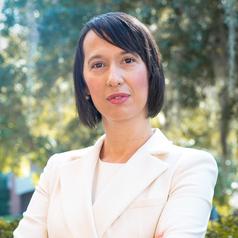
Eleni Bozia
Associate Professor of Classics and Digital Humanities, University of Florida
Professor Bozia studies linguistic and cultural diversity in Greco-Roman antiquity and its intersection with modern globalism. Founder of an international consortium for the digitization of historical artifacts, she promotes the collaboration between the humanities and the sciences. Bozia is also a pioneer in applying AI to the humanities. She has published widely and delivered talks on issues of identity, otherness, and belonging in literature and the digital preservation of world heritage.
Bozia has served as the Chair of the Diversity, Equity, and Inclusion Steering committee at the College of Liberal Arts and Sciences and the co-Chair of the DEI in General Education Taskforce at the University of Florida.
An Associate Professor at the University of Florida, Bozia holds two doctoral degrees: a Ph.D. in Classical Studies (University of Florida, 2009) and a Dr. phil. in Digital Humanities (Universität Leipzig, 2018). Bozia also serves as the Associate Director of the Digital Epigraphy and Archaeology Project, which advances the 3D preservation of artifacts with funding from American and European governmental agencies. Her work has been supported by the National Endowment for the Humanities and the Andrew W. Mellon Foundation and has been recognized with several awards, including the Young Researcher Scholarship from La Fondation Hardt in Geneva and the Mary A. Sollman Scholarship from the American Academy in Rome.
Less ![]()
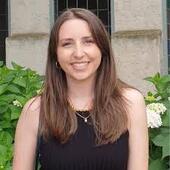
Eleni Kavaliotis
Research Fellow in the Sleep, Cognition, and Mood Laboratory at Monash University, Monash University
Less ![]()
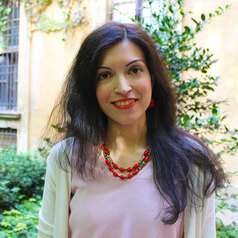
Eleonora Ardemagni
Teaching Assistant ("New Conflicts") Catholic University of Milan, Senior Associate Research Fellow at ISPI, and Adjunct Professor at ASERI ("Yemen: Drivers of Conflict and Security Implications"), Università Cattolica del Sacro Cuore - Catholic University of Milan
Less ![]()
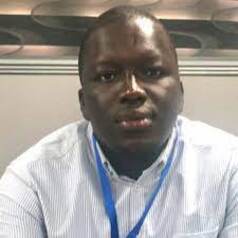
Elhadj Bara Dème
Research Associate, University of Portsmouth
Elhadj Bara Dème is an associate researcher at the University of Portsmouth, member of the Blue Governance Centre and coordinator of the GREPPAO project for management and resilience of small pelagic fisheries in West Africa, with financial support from the European Commission.
Dème specialised in fisheries resource management, ecosystem services assessment, and blue governance,
He has overseen multiple research initiatives in West Africa. These initiatives span a range of topics from fishery value chains to food security, and also address challenges associated with migratory fishing. He is the author of more than 40 journal articles and around 50 book chapters, research reports, consultancy reports, and so on.
Dème has research collaborations with other researchers across West Africa, France and Canada.
Less ![]()
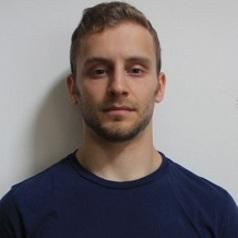
Eli Auslender
Research Fellow in Migration and Climate Change, Aberystwyth University
Eli is a migration scholar who studies policies surrounding asylum-seekers and refugees, including border policies and integration policies. Though his initial research focus was on Germany, his research zones have expanded to study global border regimes and refugee rights upon obtaining asylum, with a particular interest in how developed states have securitised their borders. He is currently a Research Fellow with Aberystwyth University's International Politics department.
Less ![]()
- Market Data




















